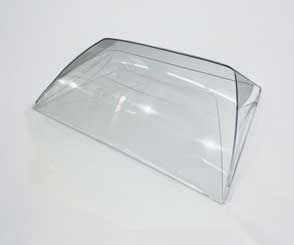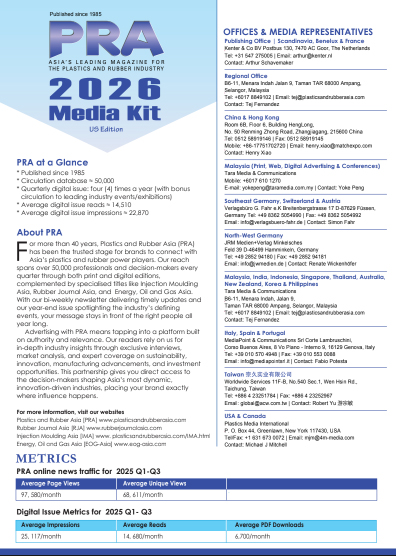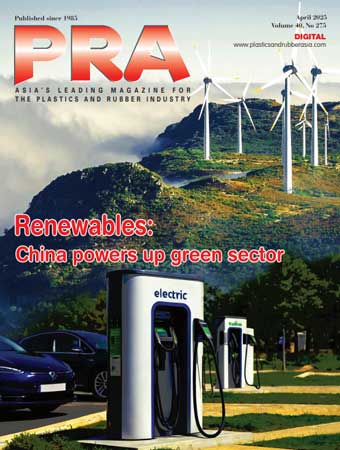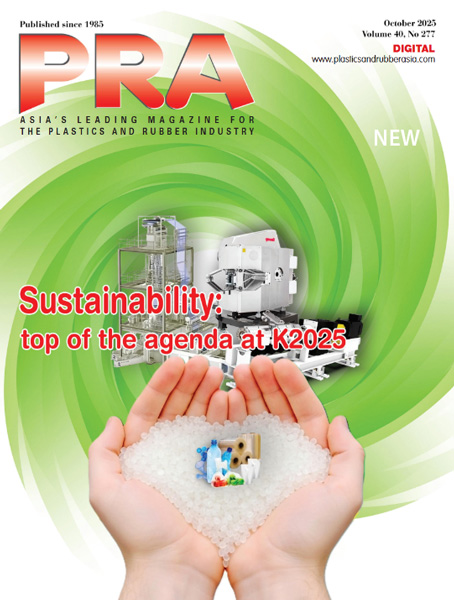Green updates: Aduro’s hydrochemolytic oil successful as steam-cracker feedstock; Teijin employs solvent-based recycling to develop polycarbonate

Aduro Clean Technologies Inc, a clean technology company, has announced the successful completion of pilot-scale steam-cracking trials ; by a global organisation that designs, licenses, and services large-scale petrochemical steam-cracking operations and supports global deployment of these technologies among petrochemical producers.
Steam crackers provide building blocks for almost all plastics, starting from oil- and gas-derived feedstock. Similarly, circular feedstocks from waste plastics will have to follow the same route to be processed into circular plastics. Steam crackers are very large-scale plants and are highly sensitive to feedstock quality, requiring high-purity inputs at scale. As a result, most circular oils produced by chemical recycling require further upgrading or pre-treatment (such as hydrotreatment) to meet those tight input specifications.
Alternative chemical recycling processes typically yield products that are high in olefins and hetero-atom content as well as other contaminants and require upgrading – such as pre-treatment or hydrotreatment - to be suitable as cracker feedstock. In efforts to try and minimize costly upgrading, extensive sorting and cleaning are often required, adding significantly to the cost of the feedstock. This also results in higher rejection rates of suitable polyolefins while increasing the environmental footprint of such processes.
By contrast, Aduro says its Hydrochemolytic technology achieves the transformation of plastics-to-liquid hydrocarbons with much higher saturation rate and lower impurity content. In addition, the boiling range of the oil is substantially lower compared to comparable chemical recycling oils, which is beneficial for application as steam cracker feedstock.
The trials were carried out in October 2025 at an established pilot-scale cracking facility in Europe, using a hydrocarbon liquid product Aduro produced from a mixed waste plastic feedstock consisting of PE, PP, PS, PET, and polyamide. The hydrochemolytic oil was processed in the pilot-scale steam-cracking furnace as-produced, without dilution or further pre-treatment, under various operating conditions. This demonstration of high suitability for the extremely stringent feedstock specification of steam crackers without the need for costly post-treatment represents an important third-party validation milestone for the technology and its application.
Cracking of the oil was achieved under stable furnace operation with yields of ethylene and propylene, key building blocks of PE/PP, comparable to those from comparable fossil feedstock. Most significantly, the cracking trials showed that this particular Aduro product may be used as a cracker feedstock without additional hydrotreatment or dilution. This enables a significant reduction in process complexity, capital investment, and operational expense for downstream operators, says Aduro.
For olefin producers and steam-cracker operators, these findings are significant. The current data suggest that the hydrochemolytic process can generate a stable, low-contaminant liquid feedstock that can be processed within existing steam-cracking systems with minimal modification.

Meanwhile in other news, Japan’s Teijin Limited has announced that it is using solvent-based recycling, an emerging technology, to develop recycled polycarbonate (PC) resin with quality comparable to virgin resin. This recycling method uses solvents to dissolve waste PC resin and separate pure polymers from contaminants such as surface coatings. It addresses challenges such as material degradation in mechanical recycling and high costs and carbon emissions in chemical recycling.
Expanding the use of recycled materials has become an urgent issue, particularly in Europe where the draft End-of-Life Vehicles (ELV) regulation is being considered. This directive mandates the use of recycled plastics derived from end-of-life vehicles in new car manufacturing.
Polycarbonate resin, which excels in transparency and impact resistance, is used in a wide range of applications, such as automotive parts and electrical and electronic components. However, waste PC resin may contain contaminants that negatively affect the properties, clarity and aesthetics of the recycled resin. For this reason, Teijin is developing solvent-based recycling for waste PC resin from sources such as end-of-life vehicle headlamps.
Teijin processes PC resin that has already undergone conventional mechanical recycling steps such as crushing and washing, but is unsuitable for applications requiring high transparency. The company then dissolves the material in solvents and removes impurities to convert it into reusable polymers. This process allows Teijin to reclaim material whose properties, including transparency, are comparable to those of virgin PC.
The PC resin produced by solvent-based recycling has high transparency, making it suitable for closed-loop and horizontal recycling; for example, recycling discarded vehicle headlamps into new headlamps or other transparent components. In this way, solvent-based recycling helps promote adoption of recycled materials and supports compliance with upcoming regulations.
In addition, because the solvent-based process does not involve breaking down materials to their chemical components, costs can be kept lower compared to PC resin produced via chemical recycling. Furthermore, compared to chemical recycling, solvent-based recycling involves fewer process steps, which helps to reduce CO2 emissions.
Teijin adds its aims to commercialise PC resin produced using solvent-based recycling by fiscal year 2026.
Subscribe to Get the Latest Updates from IMA Please click here
©2025 Injection Moulding Asia. All rights reserved.












